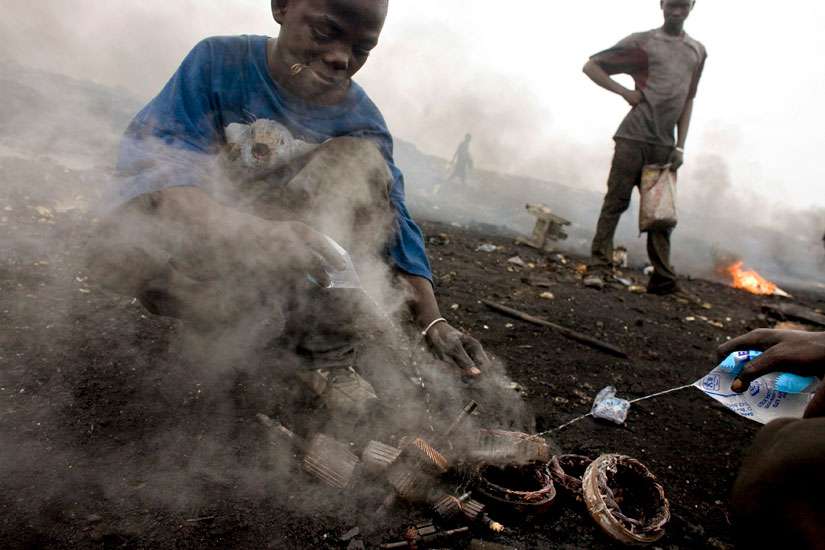"We regret to note once again the persistent pollution of our water bodies, the littering of plastic waste everywhere, the careless felling of trees in our forests and savannah area and the rampant illegal mining (galamsey) operations in our towns and villages," the bishops said in a statement Nov. 13, at the end of their general meeting in Bolgatanga.
They praised the idea of a National Sanitation Day on the first Saturday of every month and urged all Ghanaians to actively participate in it, calling it a "Christian duty and a civic responsibility. We urge all Ghanaians to acquire the habit, not only to clean up our surroundings but most importantly, let us all learn how not to make our environment dirty in the first place."
The bishops also urged Catholics -- and others -- to read Pope Francis' encyclical, "Laudato Si', on Care for Our Common Home," saying "it provides a good resource for all, but most especially, policymakers."
They said all laity are charged with the protection of the environment and should know that the environment is God's handiwork.
They also said the increasing urbanization of Ghana has increased prostitution and HIV and has created the problem of "streetism," in which children who should be in the classrooms are found loitering or hawking on the streets. They also said even though the number of armed robberies had decreased, there was room for improvement.
With urbanization, urban poverty has increased over the past few years compared with rural poverty, the bishops said.
"These problems relating to urbanization may seem daunting, but we are guided by faith and hope that, united as one people, we can surely surmount these formidable challenges," the bishops said.
Discussing unemployment, the bishops said the situation has been worsened by unskilled graduates from high schools and colleges. They said increasing numbers of Ghanaians were moving to the city for jobs that did not exist and ended up as "shoe-shine boys and girls." They encouraged the government to "turn some of the community secondary schools currently under construction into community vocational and technical schools and continue to equip ... the existing vocational and technical institutes in the country."


